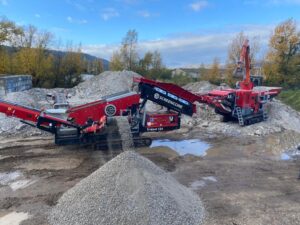The African Union (AU) has noted the clear impact of infrastructure deficit on African competitiveness, recognising this as “a continental problem that requires a continental solution”. Regional integration through infrastructure programmes is expected to overcome constraints imposed by scale and location, and improve the competitiveness of African producers, connecting consumers and enhancing intra- and inter-regional trade. By Teddy Daka, Co-CEO, Zutari.
African leaders have consistently expressed their desire to support Africa’s economic development through a common market for goods and services. A 2016 report by McKinsey projects that Africa’s manufacturing “output could expand to nearly US$1-trillion” by 2025 if Africa’s manufacturers upscaled to meet domestic consumer and business demands. This will require inter-sectoral collaboration between business and governments to address obstacles to production and exporting of goods.
Recognising these and other market opportunities, aspirations for Africa’s development have begun to translate into policy-making: The African Free Trade Agreement underscores regional policy efforts towards this goal; the AU’s Programme for Infrastructure Development (PIDA) is an outcome of a coordinated policy effort to unlock competitive opportunities; and, in South Africa, the recent adoption of the District Development Model shows a localised shift, mirroring intra-regional policy trends.
While much research, advocacy and institutional work is ongoing towards reshaping African policies to support effective integration, this goal relies on the effective implementation of Public-Private-Partnerships (PPPs) as a mechanism. The PPPs which undertake infrastructure projects unconsciously mediate a social contract between governments and citizens against which to monitor performance.
Our ability to leverage innovative regional development hinges on the translation of infrastructure development practices across the entire development process. It is clear that infrastructure delivery – and the quality of leadership, governance and public-private cooperation required for its development – both exist as grand challenges in their own right and underpin the interventions necessary for many others.
As Africa joins the global effort to attract funding from large global institutional investment vehicles, its ambitions are being matched through more integrated policy making, redesigned finance instruments and project execution practices and project information systems that support performance monitoring.
For visions of shared prosperity, regional integration and intra-continental strengthening to translate from policy through to development practices (across the value chain), and service delivery performance, calls for embodying a developmental identity and embedding an innovative mindset at multiple levels throughout the sector and across the infrastructure delivery value chain.
We are pushed to be resourceful, intelligent and wise; we are required to be adaptive, to develop our talents, our capacity; and we certainly need to cultivate the motivation and commitment to see through this multi-generational task.






